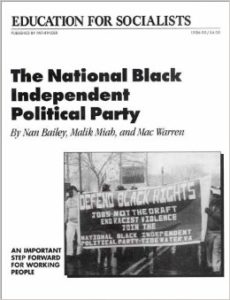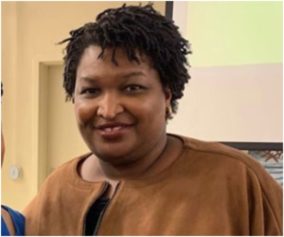
Marable said Black people had grown disillusioned with “self-serving” politicians.
“In growing numbers, black Americans have become convinced that the current generations of political puppets cannot provide innovative answers to people’s day-to-day problems,” he wrote. “It will take new insights to solve the contemporary social and economic crises that afflict black, poor, unemployed women and Third World people. These demands upon American society make an independent black party imperative. At least, there exists a political party that people can trust.”
Marable’s wrote that article in 1980. But after eight years of Reagaonics and the so-called War on Drugs, Bill Clinton’s mass incarcerations and George W. Bush’s reign of error, things are much worse. Marable’s words are still relevant today. Even the election of President Barack Obama has not improved Black people’s situation that much. In the tail end of his presidency, he has tried to address mass incarceration. He was the first sitting president to visit a jail to raise awareness about how long prison sentences ruin whole families, but some could argue that’s too little too late. In addition, Obama seems powerless to stop police killing black men and women. According to statistics from British paper The Guardian, deaths at the hands of American police just hit the 1,000 mark.
In an article in New York magazine titled, “The Paradox of the first Black President,” Alicia Garza, one of the founders of Black Lives Matter, and several other Black leaders, voiced their frustration with Obama.
“By now, it’s safe to say that black people have wanted Obama to do more,” said Garza. “Too often, he uses these occasions [of police killing Black men] not to push for greater accountability within law enforcement, but to push a narrative that black people should behave more responsibly.”
Writing for the Hampton Institute, a working-class think tank, Sean Posey, said the failure of both parties to improve the situation of Black people could lead to another wave of Black nationalism.
“Still, regardless of whether a Democrat or a Republican occupies the White House in 2017, it’s doubtful any agenda addressing black communities will be discussed, much less enacted. In the months and years ahead, it is possible that we will see the rebirth of a new, almost certainly unique and unexpected version of Black nationalism,” he said.


